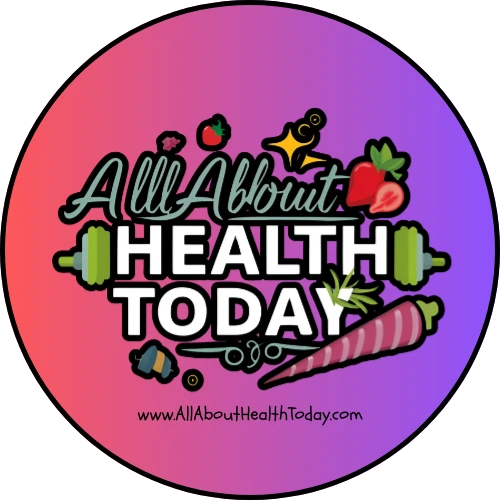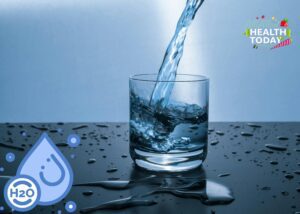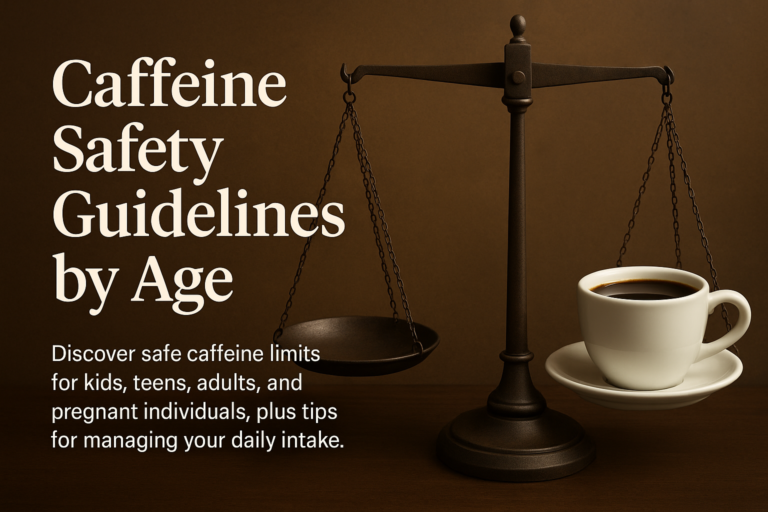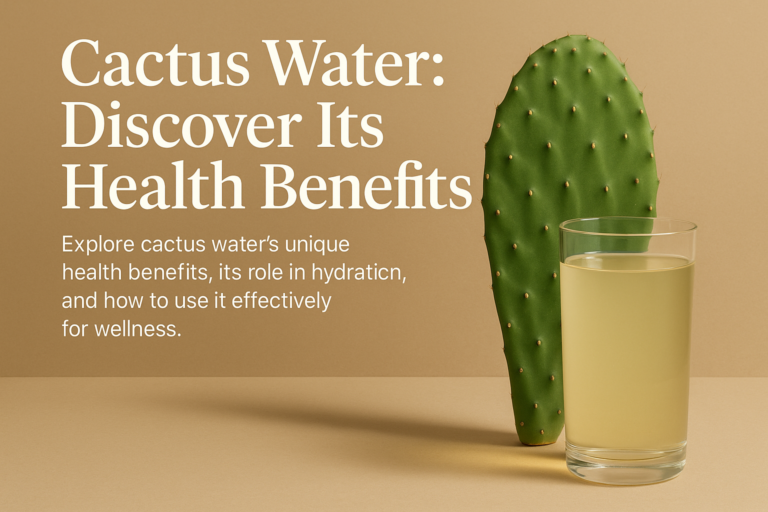Introduction💧
Water is essential to life, yet many of us often overlook how much we need to drink daily to stay healthy. Whether you’re an athlete, a busy professional, or simply someone trying to maintain a healthy lifestyle, understanding your hydration needs is crucial. But with so much conflicting information out there, it can be challenging to determine exactly how much water is right for you. In this article, we’ll explore the importance of staying hydrated, debunk common myths about water intake, and provide practical tips to ensure you’re drinking enough water every day. By the end, you’ll have a clear understanding of how to keep your body well-hydrated and healthy.
Understanding Your Water Needs
The Importance of Staying Hydrated
Staying hydrated is vital for numerous bodily functions. Water aids in digestion, regulates body temperature, transports nutrients, and helps flush out toxins. When your body is well-hydrated, you feel more energetic, your skin looks healthier, and your overall well-being improves. Dehydration, on the other hand, can lead to fatigue, headaches, and even more severe health issues.
Factors Influencing Water Needs
Your water needs can vary based on several factors: how much water should you drink in a day?
- Age and Gender: Generally, men require more water than women, and hydration needs can change with age. Children and elderly individuals may need to monitor their intake more closely.
- Activity Level: If you exercise regularly or have a physically demanding job, you’ll need more water to compensate for the fluids lost through sweat.
- Climate and Environment: Hot and humid conditions can increase your water needs as your body loses more water through perspiration.
- Health Conditions: Certain health condition complications, such as kidney stones or urinary tract infections, require increased water intake. Additionally, pregnant or breastfeeding women need more water to stay hydrated.
Debunking Common Myths About Water Intake
There are many myths surrounding water intake, and it’s essential to separate fact from fiction:
- Myth 1: Everyone Needs 8 Glasses of Water a Day: While a good general guideline, individual needs can vary significantly. Your water requirement depends on various factors like activity level and climate.
- Myth 2: Thirst is a Reliable Indicator of Hydration: By the time you feel thirsty, you might already be mildly dehydrated. It’s better to drink water regularly throughout the day.
- Myth 3: Drinking Water Can Help Lose Weight: While water can aid in weight management by promoting satiety, it is not a magic solution for weight loss. It should be part of a balanced diet and healthy lifestyle.
💧✨ Stay Hydrated in Style! ✨💧
Looking for a convenient way to keep your water intake on track?
Check out the Simple Modern Water Bottle with Straw and Chug Lid. This 32oz vacuum-insulated stainless steel bottle is perfect for staying hydrated, whether you’re at the gym, office, or on the go. Its leak-proof design and BPA-free materials ensure you drink clean, fresh water all day. Stay stylish and hydrated with the Summit Collection! 🥤🌟
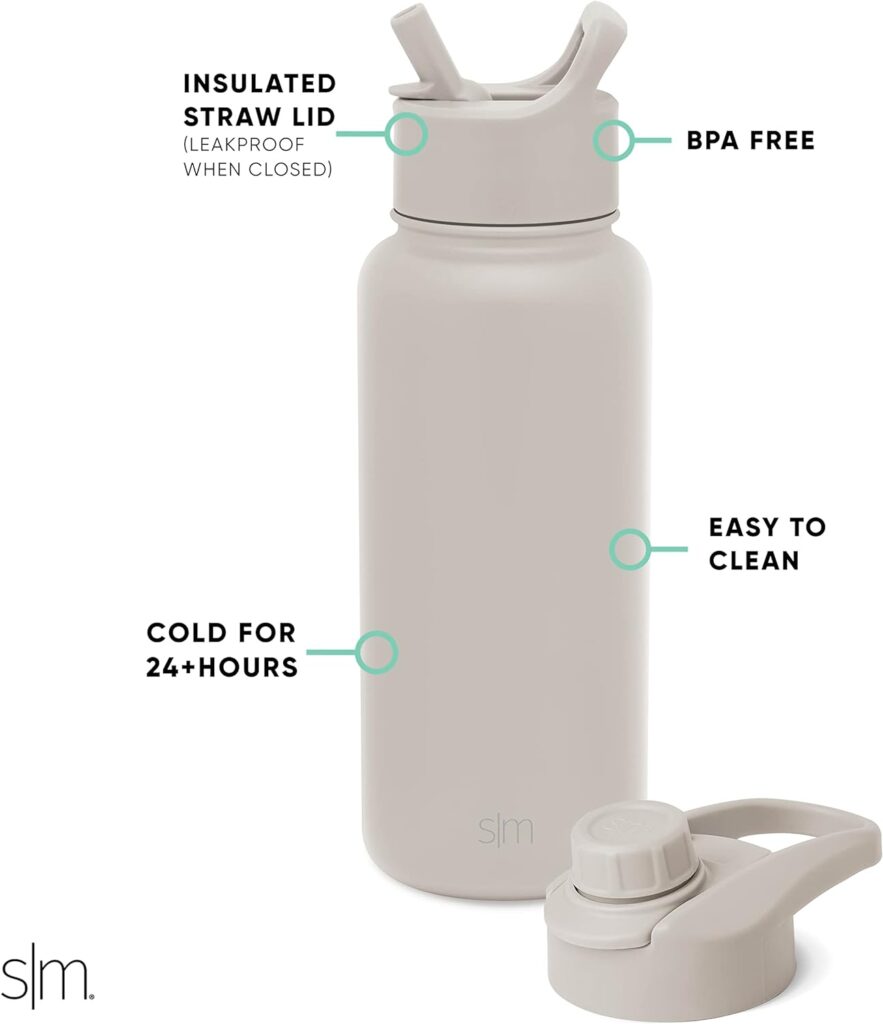
How Much Water Should You Drink Daily?
General Guidelines
The amount of water you need to drink daily can vary, but general guidelines can help you get started. The National Academies of Sciences, Engineering, and Medicine recommends a daily water intake of about 3.7 liters (125 ounces) for men and 2.7 liters (91 ounces) for women, including all beverages and food. However, individual needs can differ based on various factors.
Adjustments for Special Situations
Certain situations may require you to adjust your water intake:
- Exercise: If you’re engaging in intense physical activity, you may need to drink extra water to compensate for the fluids lost through sweat. A good rule of thumb is to drink an additional 1.5 to 2.5 cups of water for short bouts of exercise, and more if you’re active for longer periods.
- Climate: Hot or humid weather can increase your sweat output and, consequently, your water needs. Make sure to drink more water when you’re in such environments to stay hydrated.
- Health Conditions: Certain health conditions and medications can affect your hydration levels. For instance, if you have a fever, diarrhea, or vomiting, you’ll need to drink more water to replace lost fluids. Always consult with a healthcare provider for personalized advice.
- Pregnancy and Breastfeeding: Pregnant and breastfeeding women have increased hydration needs. It’s recommended that pregnant women drink about 10 cups (2.4 liters) of fluids daily, while breastfeeding women should aim for about 13 cups (3.1 liters).
Signs of Dehydration
It’s essential to recognize the signs of dehydration to ensure you’re drinking enough water. Common symptoms include:
- Dry mouth and throat
- Dark yellow urine
- Fatigue and dizziness
- Headache
- Confusion or irritability
If you experience any of these signs it may be your sign to try Nectar Hydration Packs – these electrolyte powder packets are sugar-free, 0 calorie, and made with organic fruit. Perfect for quick rehydration and relief keeping you feeling energized and refreshed ALL DAY. Stay hydrated and feel your best! 💧✨
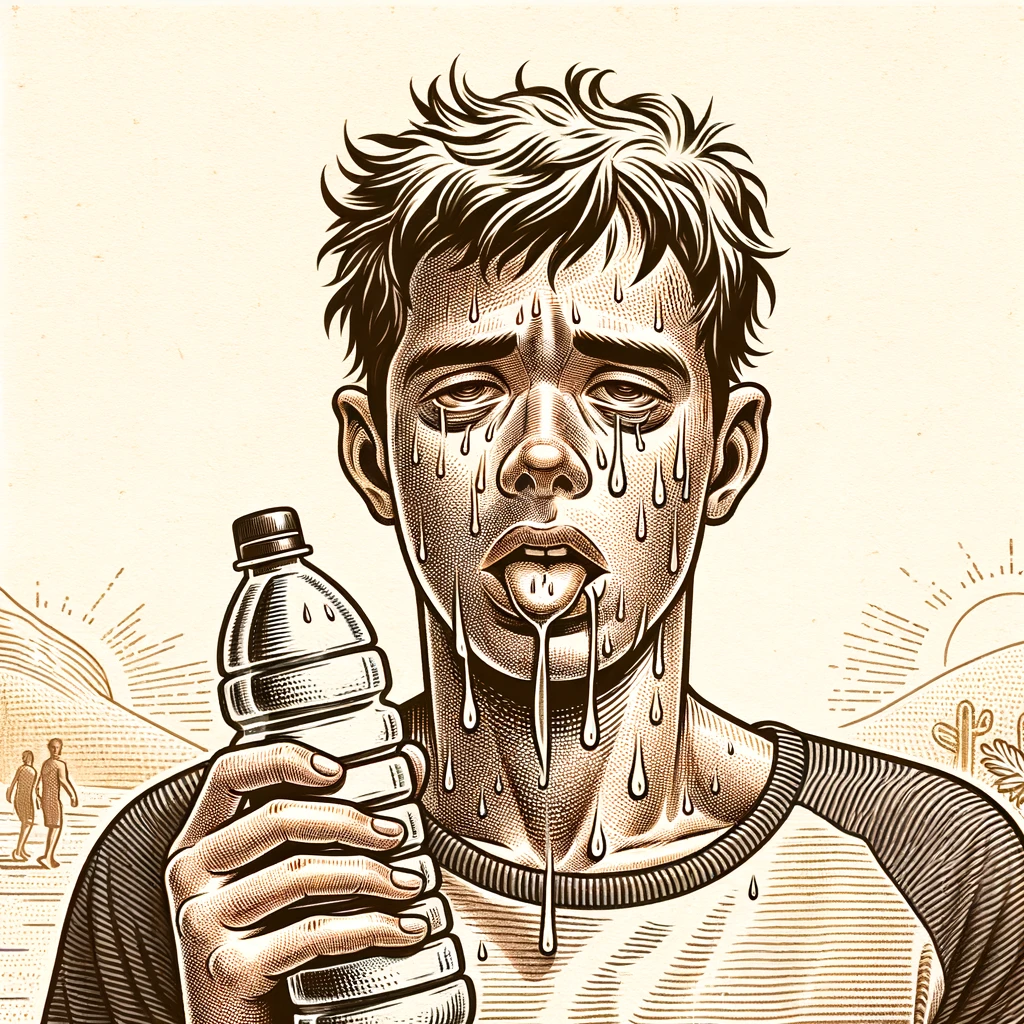
Conclusion
Staying properly hydrated is essential for maintaining overall health and well-being. By understanding your water needs, recognizing the signs of dehydration, and implementing practical tips to increase your water intake, you can ensure that your body remains well-hydrated.
Remember, proper hydration supports not only your physical health but also your mental clarity and energy levels.
Looking to boost your energy even further? Check out our article on Vitamins for High Energy Levels to discover how the right nutrients can keep you energized and at your best all day long. 🌟💊
